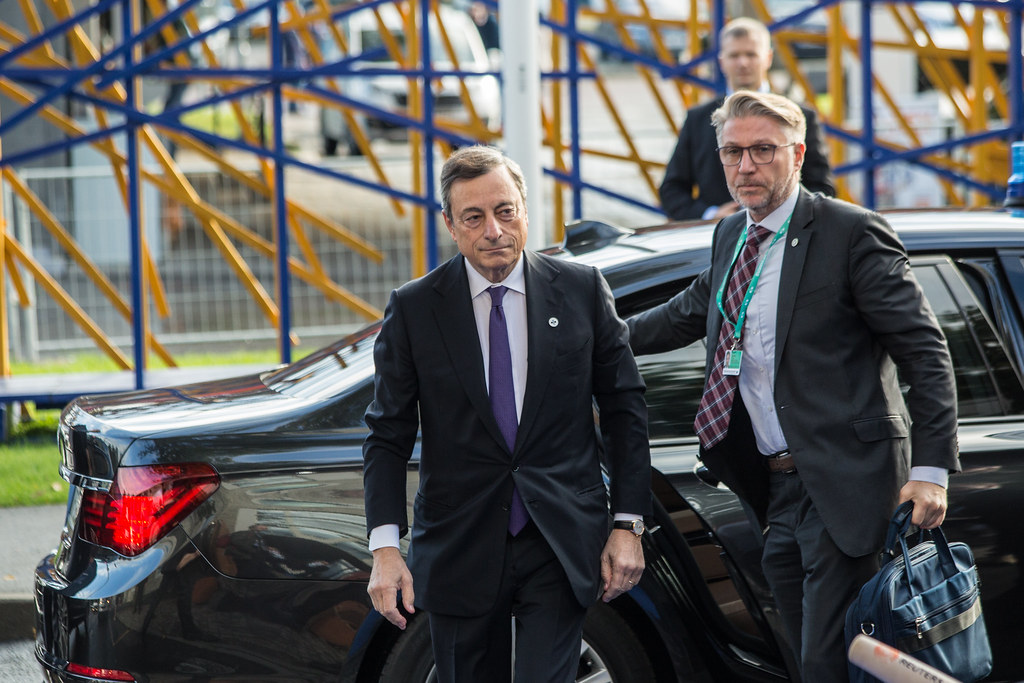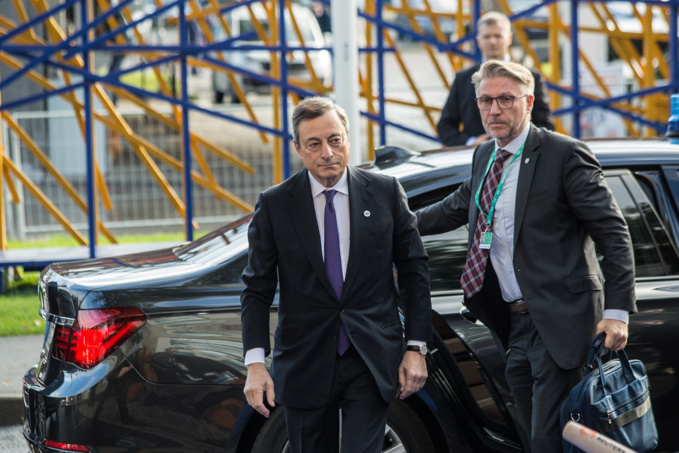Mario Draghi, Head of the ECB, held on Thursday the last meeting of the ECB's governing council and the last press conference in this capacity. Former IMF head Christine Lagarde will replace him on November 1. ING Bank notes the “unemotional, benevolent, unpretentious, analytical, and fact-finding” style of Mario Draghi's answers, including questions about disagreements of the Governing Council and decisions on the September package of “quantitative easing” of the ECB, which contradicts the recommendation of the “technical committees” of the regulator. However, Mario Draghi essentially refused to answer most of the questions, including about his future career.
Mr. Draghi was elected Head of the ECB in June 2011. Then, his predecessor, Jean-Claude Trichet, was deeply and often very scandalously immersed in the world of French and European politics. This is why the question of the management style of the euro-issuing bank was considered extremely important. The EU decision on debt restructuring in Greece was made in the spring of 2010, and the beginning of Mario Draghi's work at the ECB was almost entirely devoted to preserving the euro zone as such - except for the acute Greek crisis, in which the EU leadership was mainly involved. Then, the European currency was threatened by the development of crisis phenomena in the economies of Spain, Portugal, Ireland and problems in Italy and France. All this happened against the backdrop of the “stifled” ECB in 2008-2009, and the systemic banking crisis in the EU as part of the global financial crisis, which started in the United States.
De facto main business of Mr. Draghi at the ECB was to save the entire banking system. Despite the fact that the role of the head of the ECB in the collective professional management system of the regulator can hardly be considered decisive, much depended on the chosen personal style of action of Draghi.
Christine Lagarde hardly has to rely on continuing the same leadership style even taking into account her experience in the IMF. She is regarded as a much more harsh and unceremonious leader, which is obvious her active participation in the “big European politics” and in the internal life of the EU leadership. Meanwhile, the legacy of Mario Draghi in the ECB, despite the success in solving the problems of 2011-2019, is peculiar. Draghi's stabilization program has made a significant contribution to the current slowdown in EU economic growth - this is largely its reverse side. The new ECB is likely to act brighter and more impulsive - all the more so since the decline in world growth in 2020 makes the ECB's attempts to obtain competitive advantages attractive for the euro zone.
source: reuters.com, ft.com
Mr. Draghi was elected Head of the ECB in June 2011. Then, his predecessor, Jean-Claude Trichet, was deeply and often very scandalously immersed in the world of French and European politics. This is why the question of the management style of the euro-issuing bank was considered extremely important. The EU decision on debt restructuring in Greece was made in the spring of 2010, and the beginning of Mario Draghi's work at the ECB was almost entirely devoted to preserving the euro zone as such - except for the acute Greek crisis, in which the EU leadership was mainly involved. Then, the European currency was threatened by the development of crisis phenomena in the economies of Spain, Portugal, Ireland and problems in Italy and France. All this happened against the backdrop of the “stifled” ECB in 2008-2009, and the systemic banking crisis in the EU as part of the global financial crisis, which started in the United States.
De facto main business of Mr. Draghi at the ECB was to save the entire banking system. Despite the fact that the role of the head of the ECB in the collective professional management system of the regulator can hardly be considered decisive, much depended on the chosen personal style of action of Draghi.
Christine Lagarde hardly has to rely on continuing the same leadership style even taking into account her experience in the IMF. She is regarded as a much more harsh and unceremonious leader, which is obvious her active participation in the “big European politics” and in the internal life of the EU leadership. Meanwhile, the legacy of Mario Draghi in the ECB, despite the success in solving the problems of 2011-2019, is peculiar. Draghi's stabilization program has made a significant contribution to the current slowdown in EU economic growth - this is largely its reverse side. The new ECB is likely to act brighter and more impulsive - all the more so since the decline in world growth in 2020 makes the ECB's attempts to obtain competitive advantages attractive for the euro zone.
source: reuters.com, ft.com



















